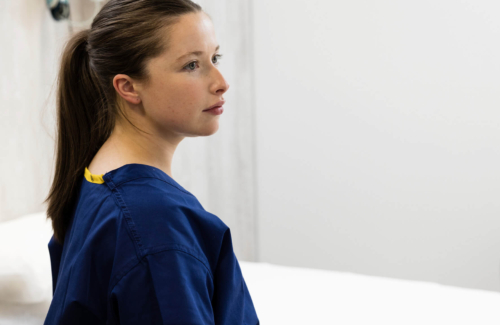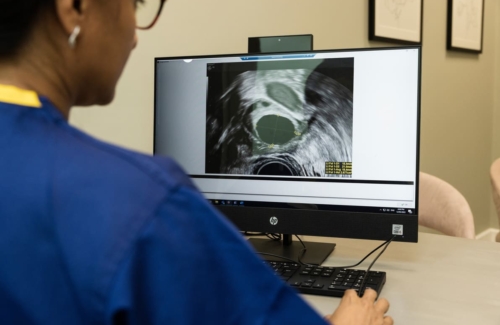Low progesterone
Progesterone is a naturally formed hormone, that is found in both men and women. For women, it is very important when trying to conceive. Read on to find out more about this important reproductive hormone.
What is progesterone?
For women, progesterone is very important when trying to conceive and is produced in a temporary hormone gland, called the corpus luteum, as part of the ovulation cycle. Progesterone prepares the innermost lining of the uterus to help support the implantation of an embryo. If a woman gets pregnant the ovaries and placenta will continue to produce progesterone throughout the pregnancy. It also helps the growth of glands in the breast during pregnancy which produce milk. High oestrogen and progesterone levels suppress ovulation during pregnancy.
If a woman does not get pregnant, however, the corpus luteum breaks down and levels of progesterone decrease causing menstruation.
In men, progesterone is produced in the testes and is needed to produce testosterone and help sperm mature.
What are low levels of progesterone?
Low progesterone levels can cause irregular periods, make it difficult to get pregnant and cause a higher risk of miscarriage.
‘Normal’ progesterone levels depend on a variety of factors such as age, sex and health history. Also, for women these levels change throughout the menstrual cycle and pregnancy.
For women:
– Normal progesterone levels at the beginning of the menstrual cycle range between 0.2 – 2.8 nmol/L
– Second half (luteal phase) of the menstrual cycle normal levels range between 5.8 – 75.9 nmol/L
If you are at these parts of the cycle and see progesterone levels lower than these amounts, you may have low progesterone levels. You can test progesterone levels very easily with a progesterone test (PGSN), which is a blood test and will also tell you whether you have ovulated or not.
Generally, men produce much lower levels of progesterone.
You might be interested in…
What causes low progesterone?
In both men and women levels of progesterone decrease with age and for women it can also be a sign of menopause.
As progesterone is produced as part of the ovulation process, one of the main causes can be anovulation, which is where an egg is not released during ovulation.
Other ovulation issues that can cause low progesterone levels are:
– PCOS – polycystic ovarian syndrome
– Thyroid issues
– Chronic stress
– Low body weight
– Obesity – read our guide on weight and fertility here
Low progesterone symptoms
Symptoms of low progesterone in women can include:
– Abdominal pain
– Irregular periods
– Spotting between periods and missed periods
– Spotting and abdominal pain during pregnancy
– Vaginal dryness
– Sore breasts
– Depression, anxiety, or mood swings
– Low blood sugar
– Headaches/migraines
Low progesterone levels can also sometimes mean higher levels of oestrogen which can cause symptoms of :
– Weight gain
– Loss of libido
– Gallbladder problems
Having low levels of progesterone in men means that they will also have low testosterone. Low progesterone symptoms in men include:
– Depression, anxiety, or mood swings
– Low libido
– Erectile dysfunction
– Muscle loss
– Fatigue
– Memory loss/trouble concentrating
Low progesterone treatment
Natural ways to increase progesterone levels include:
– Zinc – is found in shellfish, pumpkin/squash seeds and nuts
– Vitamin B – is found in sunflower seeds, fish, turkey and dried fruit
– Vitamin C – is found in oranges and strawberries
– Magnesium – is found in spinach, fish, dark chocolate and whole grains
– Regulating stress – read our article on stress and fertility here
For more information on the fertility diet read our article here and if you want to find out more about supplements read our guide here.
Low progesterone infertility treatments are highly effective and include:
– Ovulation-inducing medications
– Trigger shots – which trigger ovulation
– Progesterone supplements prescribed by your doctor
– IVF
Unfortunately, low progesterone levels in men in generally harder to treat. Usually, it’s caused by an underlying health issue, which when treated will then help levels go back up. Other natural ways to help treat low progesterone in men include: exercise, eating a balanced diet, maintaining a healthy weight and getting the right amount of sleep. Read our article on increasing fertility in men here.
How can we help?
At The Evewell we are fertility experts with 20+ Years of experience. If you are worried about anything to do with your fertility or are experiencing any symptoms, please get in touch with us and we can help you. Call us on 020 3974 0950 or email us at appointments@evewell.com.









